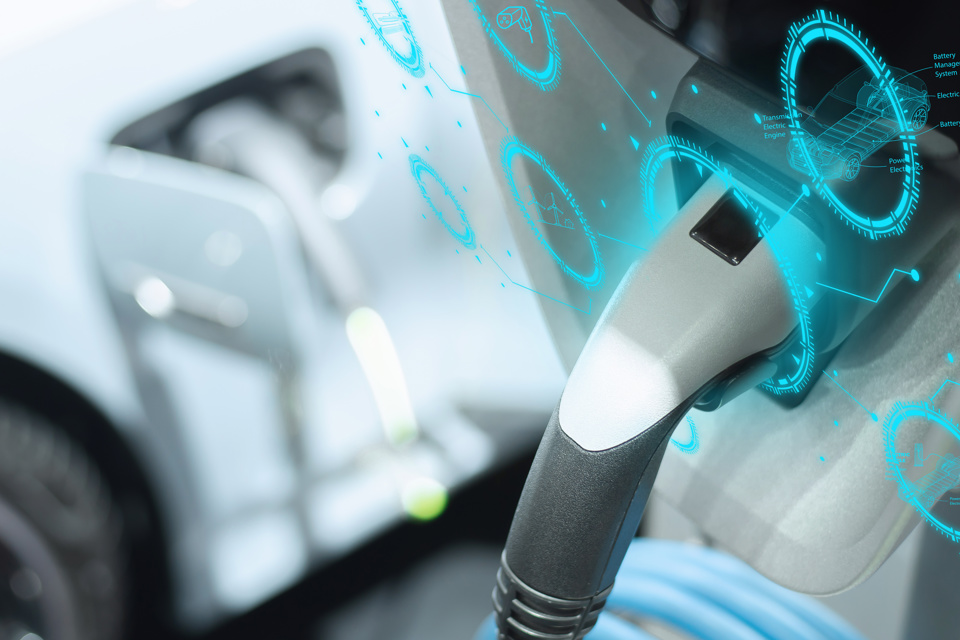
The Future Of EV's
Even aside from the governmental incentives to embrace Electric Vehicles (EVs), the British public has been embracing EV motoring on an increasing scale since the introduction of the first EVs over 10 years. Aside from the smooth driving characteristics, and the cheaper running costs, the environmental benefits of EVs are clear, and as more and more EVs replace traditional petrol and diesel vehicles on our roads, both carbon dioxide and particulate pollution will fall.
The popularity of electric vehicles has grown exponentially, with these zeroemission machines now available in a wide variety of shapes and sizes. From compact crossovers to executive saloons, customer choice, ever-increasing battery technology, and growing charging infrastructure has made going electric a viable proposition for many. But what does the future hold for electric cars?
Even more capable cars
The momentum behind EV technology is huge. Electric is no longer the niche it once was, and for many post the 2035 combustion engine ban, it will become the default choice. With more models hitting the mainstream from just about every manufacturer, competition is heating up with technology developing at a pace. ‘War is the mother of invention’ as they say…
Looking at the speed of development over the past five years alone, it’s easy to predict that this trajectory of more capable batteries is set to continue. What does that mean for those behind the wheel? Expect vehicles with longer ranges that will go further on a single charge and be even more efficient.
Currently according to the Society of Manufacturers and Traders the average range of an EV in the UK is 236 miles. Engineers are currently working on solidstate batteries that promise incredible performance. In fact, Toyota currently has a prototype system that can potentially deliver a range of up to 754 miles and charge in just 10 minutes. Game changing, and enough range for even the busiest of fleet drivers!
Faster chargers and more of them
While the most ideal and cost-effective place to charge your EV is at home overnight on cheaper energy tariffs, sometimes there’s the need to use a public charger. Maybe you’re heading further afield, or away on holiday, or don’t have access to a home charger. The good news is their numbers are growing rapidly.
Motorway services are set to dramatically grow their charging capabilities, while more attractions and places of work are now providing charging facilities. Destination charging – charging at your final location as opposed to along route – will become a normality. A recent announcement celebrated that there are now more than 50,000 public charging devices installed across the country. Zap Map estimates that this figure will rise to 100,000 as early as August 2025 and as EV numbers increase across the UK then the level of chargers available even in the remotest of areas will multiply
Better than there being more chargers, you’ll spend less time parked waiting to top up the battery. Already, many cars are capable of rapid charging at 100kW, with an increasing number pushing on to a massive 350kW. That means you can get a 20-80% charge done in around 25 minutes.
EVs will become cheaper
Just like any technology, early adopters tend to pay higher prices to be amongst the first. However, as manufacturing of EVs grows even further and more efficiencies are developed, the costs of production will reduce. It’s likely these savings will be passed onto customers as a big competitive advantage for brands is price point.
Manufacturers such as MG and Citroen are already creating good value EVs that stand up to more costly rivals, while a raft of Chinese companies are getting set for launching value EVs from 2024 that will be on par with current petrol and diesel models from mainstream car makers.
EVs will save more people money
Electric cars are cheaper to run than their combustion counterparts. With very few moving parts, servicing is cheaper and low energy tariffs allow for less costly fuelling. However, one of the biggest cost savings also benefits the environment in the form of zero-emissions. An increasing number of cities are charging entry for polluting vehicles, and so an exempt EV could save you a fortune over a year in reduced charges and fines.






